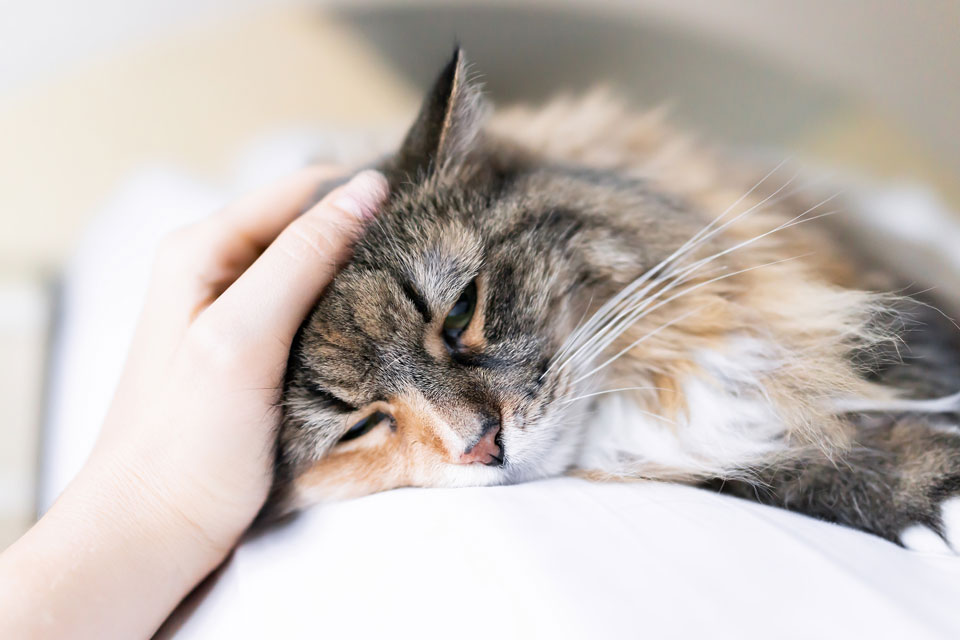Bronchitis in Cats

Bronchitis is inflammation of the small airways in the lungs. The inflammation causes secretions that block those airways In cats, bronchitis is often but not always associated with asthma.
Signs of Bronchitis in Cats
Signs of feline bronchitis can include:
- Coughing
- Difficulty breathing
- Wheezing
- Rapid breathing
- Panting
- Open-mouthed breathing (this is an emergency)
Bronchitis in cats can be acute (short-term) and reversible or chronic (long-term) and possibly cause irreversible changes in the airways. In cases of chronic bronchitis, the signs may be consistent or recurrent.
Causes of Bronchitis in Cats
Bronchitis can be caused by:
- Bacterial or viral infections of the airways
- Allergies
- Parasites (especially toxoplasmosis and heartworm disease)
- Constant exposure to irritants like cigarette smoke or dusty cat litter
Diagnosis of Feline Bronchitis
When a veterinarian does a thorough physical examination, he or she may hear crackles or wheezes in the lungs when listening with a stethoscope.
Chest x-rays are the primary way that veterinarians diagnose changes in the lungs consistent with bronchitis. From there, other tests may be performed to determine the underlying cause, such as a heartworm test or a bronchoalveolar lavage test (BAL). For a BAL, a sample of fluid from the lungs is collected and examined in the lab.
Treatment of Bronchitis in Cats
If an underlying infection or parasite is identified, that must be treated in order to help the cat with the bronchitis. Often, bronchodilator medications are used to open the airways and corticosteroids are given to combat inflammation in the airways.
For chronic bronchitis, the kitty may need intermittent treatment. Additionally, exposure to irritating substances in the air should be eliminated as much as possible. That includes:
- Cigarette smoke
- Perfume
- Dusty cat litter
- Essential oil diffusers
- Liquid potpourri
- Scented candles
- Air fresheners
- Cleaning products
- Scented laundry detergent or fabric softener
- Mold
A sudden, severe attack of bronchitis in a cat can be life-threatening.
You May Also Like These Articles:
Feline Asthma: Lower Airway Disease
X-Rays in Cats: What They Can Tell Your Vet
Notice: Ask-a-Vet is an affiliated service for those who wish to speak with a veterinary professional about their pet's specific condition. Initially, a bot will ask questions to determine the general nature of your concern. Then, you will be transferred to a human. There is a charge for the service if you choose to connect to a veterinarian. Ask-a-Vet is not manned by the staff or owners of CatHealth.com, and the advice given should not delay or replace a visit to your veterinarian.





